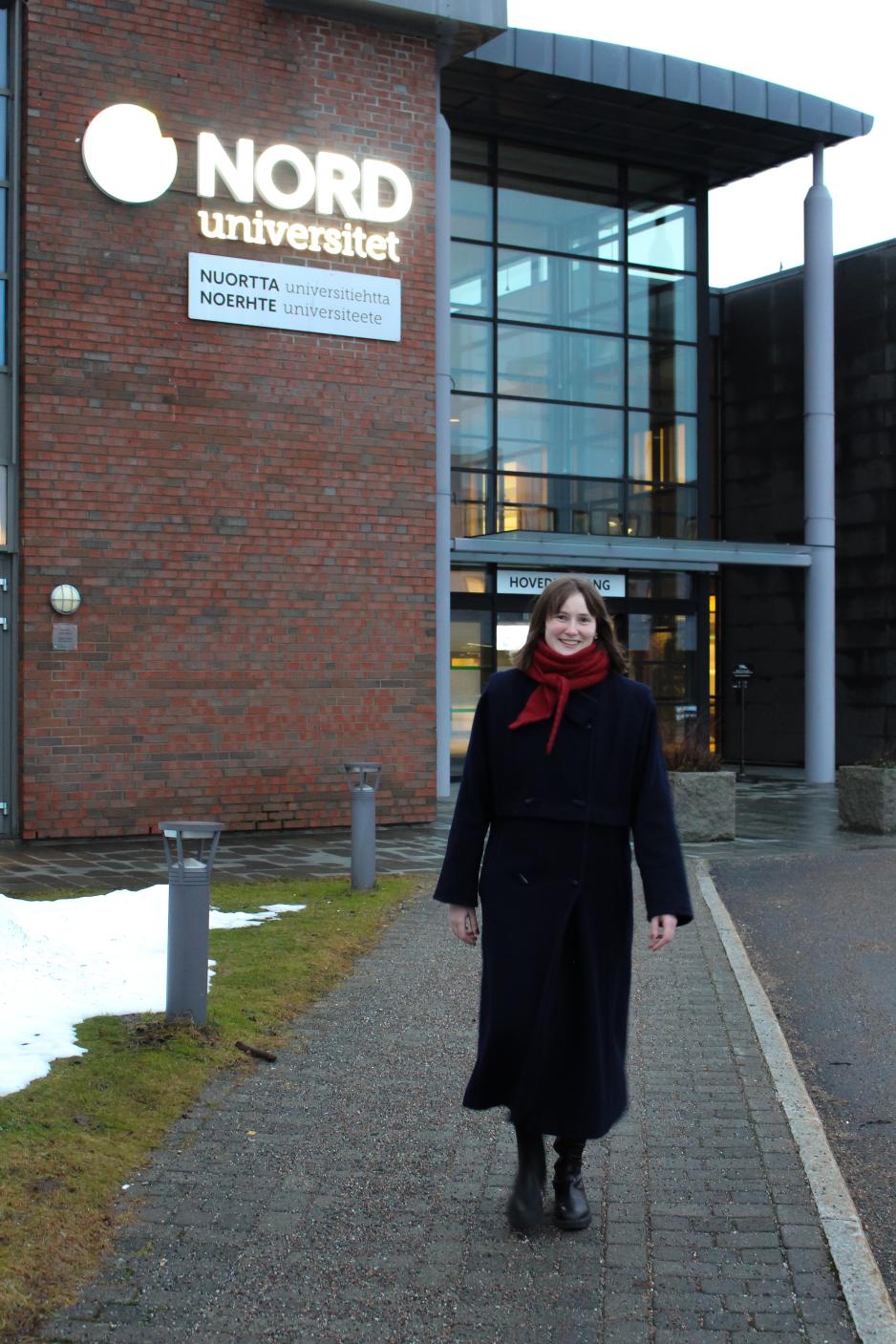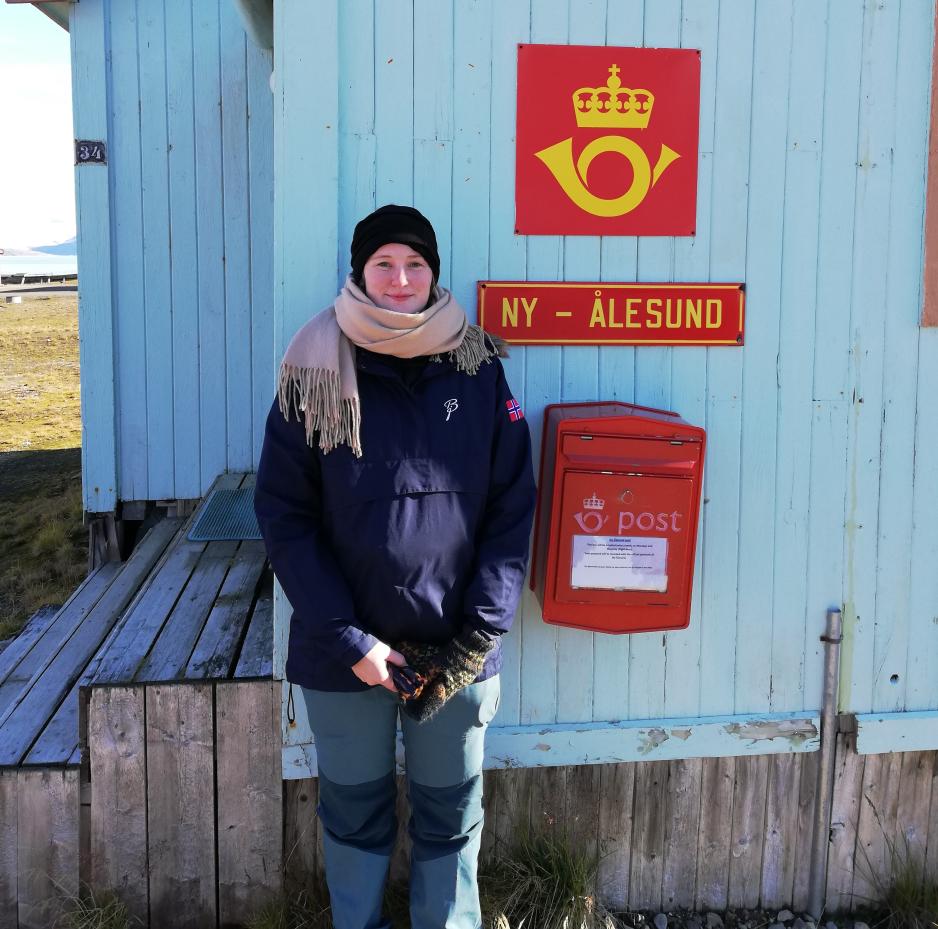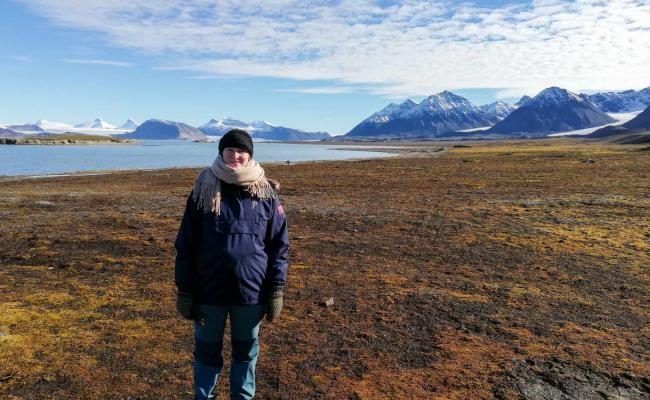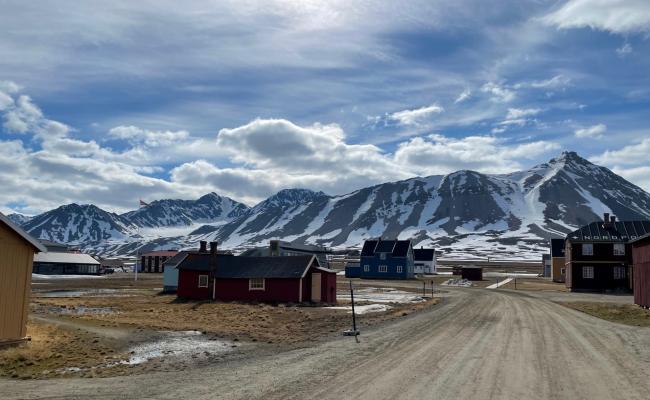The Arctic Scientist Profiles: "The Norwegian Government 'Greenwashes' the Norwegian Svalbard Policy"
Researcher Tiril Vold Hansen recently completed a three-year-long PhD project about the Norwegian Svalbard policy. Her most important findings include how Norwegian authorities utilize environmental regulations to strengthen the sovereignty of Svalbard. (Photo: Birgitte Annie Martinussen)
Bodø (High North News): Svalbard Researcher Tiril Vold Hansen wants her research to clarify to the Svalbard inhabitants how the government thinks and prioritizes when implementing new regulations for the archipelago. "Norwegian authorities prefer local frustration over an international Svalbard debate," she says.
Svalbard Researcher Tiril Vold Hansen (28) recently completed her PhD at Nord University. She defended her work, 'Power and Interests in Norway's Svalbard Policies, ' just before Christmas. She has already started in a new position at the Nordland Research Institute, where she will continue working on the topic she has become an expert in: Norwegian Svalbard policy.
HNN's science journalist meets Hansen in the center of Nord University to discuss her PhD project and what is next for the researcher. She reveals her most important findings, including the hidden motives behind Norwegian authorities' environmental regulations on Svalbard. In addition, she reflects on how to balance her role as a researcher and her political commitments.
"I don't believe in absolute neutrality. I think it's important to be open about where you stand. On my part, my political involvement has not caused any limitations so far. Still, I can imagine that there could be negative consequences, that not everyone would like to talk to you, or that you can't access all the areas you would like to research," she says.

Svalbard Researcher Tiril Vold Hansen on a notably hot January day in the Arctic. Tiril completed her PhD at Nord University and is now working for the Nordland Research Institute, which is also located on campus. (Photo: Birgitte Annie Martinussen)
The path toward Svalbard research
The researcher says the path toward Svalbard research started in Bodø during her bachelor's in political science. Tiril comes from Offersøya in Alstahaug municipality and began her education at Nord University, where she chose High North subjects as part of her degree.
The researcher embarked on a master's degree in Oslo after finishing her bachelor's. During her stay there, she received a scholarship position at the Fridtjof Nansen Institute and could write her master's thesis under the guidance of some of the most prominent Svalbard researchers in Norway.
At this time, Hansen was the deputy leader of Red Youth, which was her main reason for moving to Oslo. But her curiosity and interest in Svalbard grew, and she returned to Bodø to embark on a PhD project in security policy.
Did you have an interest in High North research from the start?
"I think that when you come from the North, it is natural to feel that it is important to focus on the North, both politically and academically."
To me, the academic and the personal have gone hand in hand from the beginning.
Combining politics and research
Whether researchers can be politically engaged has been a hot topic at times.
Hansen's digital profiles present her political engagement alongside her research. With a background in Red Youth and a current position in the Red Party in Bodø, she has reflected on the balance between research and political involvement.
Have you ever had a problem with combining politics and research?
"This is something I am trying to figure out. I don't think it is strange to be interested in things from both an academic and a personal perspective. For me, this has gone hand in hand from the beginning."
As a political scientist, it might be obvious that the researcher is interested in politics.
"This was something I considered during my PhD project as well, whether my political interest in environmental politics could have a negative impact when meeting those working in the coal industry, for example," she says.
During an interview with someone who worked in the mining industry, she learned that the interviewee had researched her and seen a "No to dumping of mining waste!" on her Facebook profile. However, this did not negatively affect the interview. Instead, it was a humorous introduction to the conversation.
"The key is to reflect on this. It is natural to have political opinions; everyone does," she says.
'Greenwashing' of the Svalbard policy
Although it might be researchers' least favorite question, the journalist dares to ask what Hansen's most important findings are. However, she has a good grasp of the media's modus operandi and has summarized her 3-year research into three main points.
"Norwegian authorities utilize environmental policies to further their geopolitical interests. Specifically, they want to continue having full Norwegian sovereignty on Svalbard and believe Norwegian presence is important to obtain that objective," she explains and continues:
"The second finding is that this strategy allows Norwegian authorities to support their sovereignty interests while also avoiding an international debate about who has the right to be and conduct activities on Svalbard. They are trying to prevent a geopolitical Svalbard discussion."
Norwegian authorities prefer local frustration over an international Svalbard debate.
Hansen believes this to be a sort of 'greenwashing' of the geopolitics. Although the environmental regulations are based on environmental conservation, they are also a means to support Norwegian geopolitical interests without explicitly saying so.
The complete and entire motive behind the Svalbard environmental policy is meant to go under the radar, which the researcher believes can be classified as greenwashing.
"The final finding is that this strategy leads to much local frustration. The local community is dissatisfied when politicians are unclear about the incentive behind the regulations. But Norwegian authorities seem to prefer the local frustration over an international Svalbard debate."

Researcher Tiril Vold Hansen during her fieldwork on Svalbard in 2022. (Photo: Private)
Aiming for clarity in the Svalbard policy
When asked what she wants her research to contribute, Hansen says she hopes it will enlighten both the local population of Svalbard and Norwegian authorities.
"I hope the PhD project can clarify how the authorities think and prioritize for the local population. That it can illuminate why things become so frustrating," she says and adds:
"And perhaps Norwegian authorities can also learn that they should be more open, transparent, and better at communicating when they make changes that are so impactful on people's lives and livelihoods. That they can learn from it as well."
Going forward
Hansen recently started in her new position at the Nordland Research Institute. She will continue to research Svalbard, but she also hopes to expand her area of expertise.
"I will continue working on Svalbard, but I also hope to expand my expertise. At the same time, Svalbard's policy is relevant to issues in many other places."
After three years of primary responsibility for her research project, the researcher is excited to embark on projects where collaboration with others will be a greater part of her workday.



